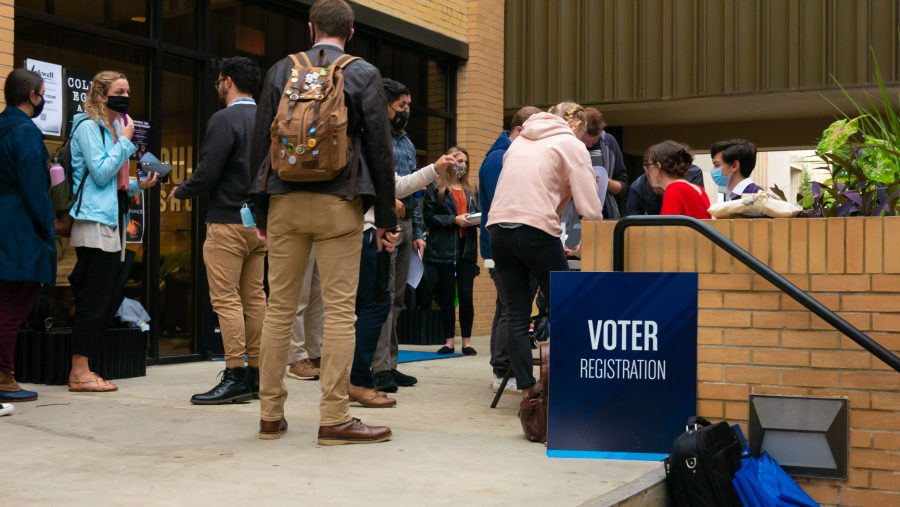Election Day 2020 is fast approaching, and absentee voting is making it possible for many Bob Jones University students to cast their vote.
Voting allows citizens to choose between candidates and policies that have a direct and personal impact on their lives and the lives of those around them, according to Randy Page, the Chief of Staff for BJU. Page encourages all students who are eligible to vote to stay engaged with their community.
“I think it’s very important for us to understand that our biblical worldview should be reflected in our vote,” Page said. “The vote does make a difference.”
Ali Zimmer, women’s student body president, said she believes Christians have a responsibility to exercise their right to vote as a tool to help shape the nation in a biblical way.
“God’s given us this platform to make a difference in our country,” Zimmer said. “I believe [that’s] important.”
Before citizens can vote, they must be registered to vote. To register, students need to follow the regulations set in place by their state. Websites like vote.org, becauseicare.us, favp.gov and usa. gov can help students register to vote or check to see if they are already registered.

Students from other voting districts can submit absentee votes for their area. Absentee voting is a mail-in voting process through which absent U.S. citizens can still participate in their local, state or national politics.
After students are registered, they can request an absentee ballot. Requests for absentee ballots can be mailed to a state’s election office. Some states allow ballot requests to be made online through the state election office’s website. Students should check with their state’s office to find the specific deadlines for requesting and sending in absentee ballots.
Before students vote, they should know who or what they’re voting for. Keeping up with the news and checking reliable online resources are a couple of things students can do to stay informed of the political situation on both the state and federal levels.
Heath Parish, the ISC men’s director, said students should also know what they believe in and carefully think through the polices proposed by election candidates in light of morals and what the Bible says. “Pray about it a lot and vote your conscience,” Parish said.
Zimmer encouraged students to vote even if they don’t completely agree with absolutely everything a candidate says.
“You need to know what you believe,” Zimmer said. “Somebody is going to be in office, regardless of whether you vote or not . . . . Find somebody you believe can lead our country in an effective way.”
After students have finished filling out their absentee ballot, they can mail it to their own state’s election office where it will be counted. Many states offer an online service where students can track their ballots to ensure they are properly counted. Once the ballot is received and counted, the voting process is complete.
South Carolina residents can also use absentee voting if they are more comfortable with it in light of COVID-19, but voting offices are open for in-person voting on Election Day, Tuesday, Nov. 3. More information can be found on scvotes.org.





















































